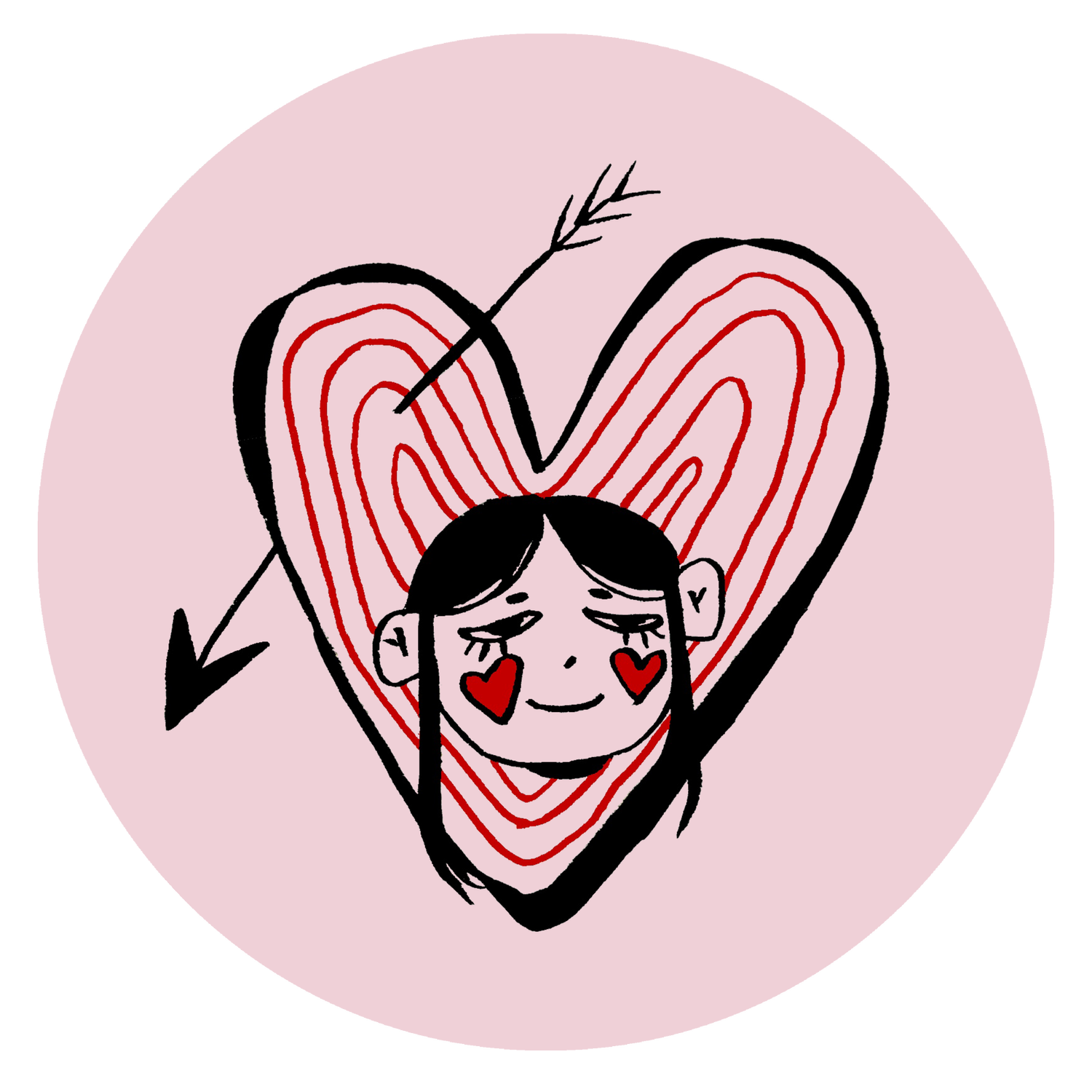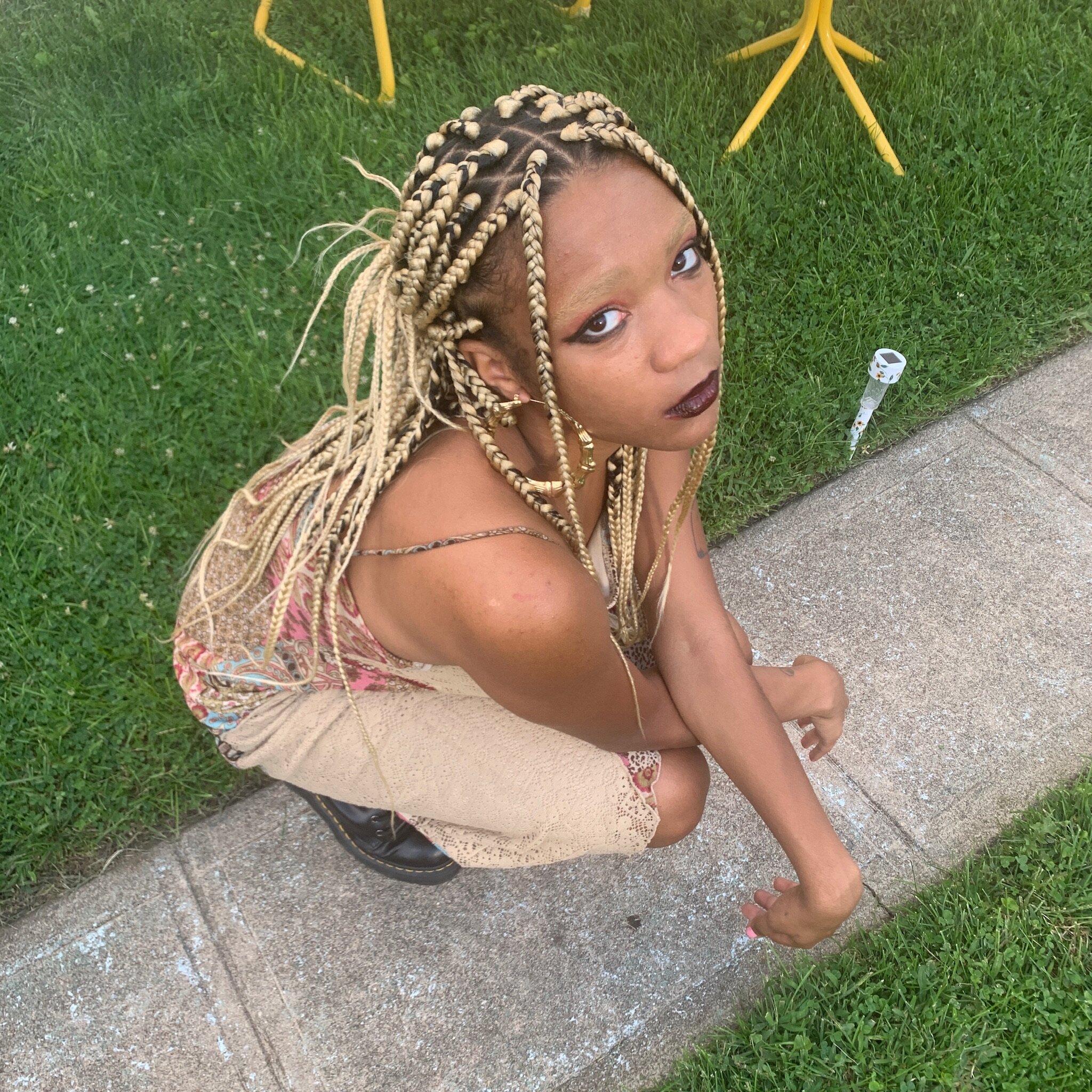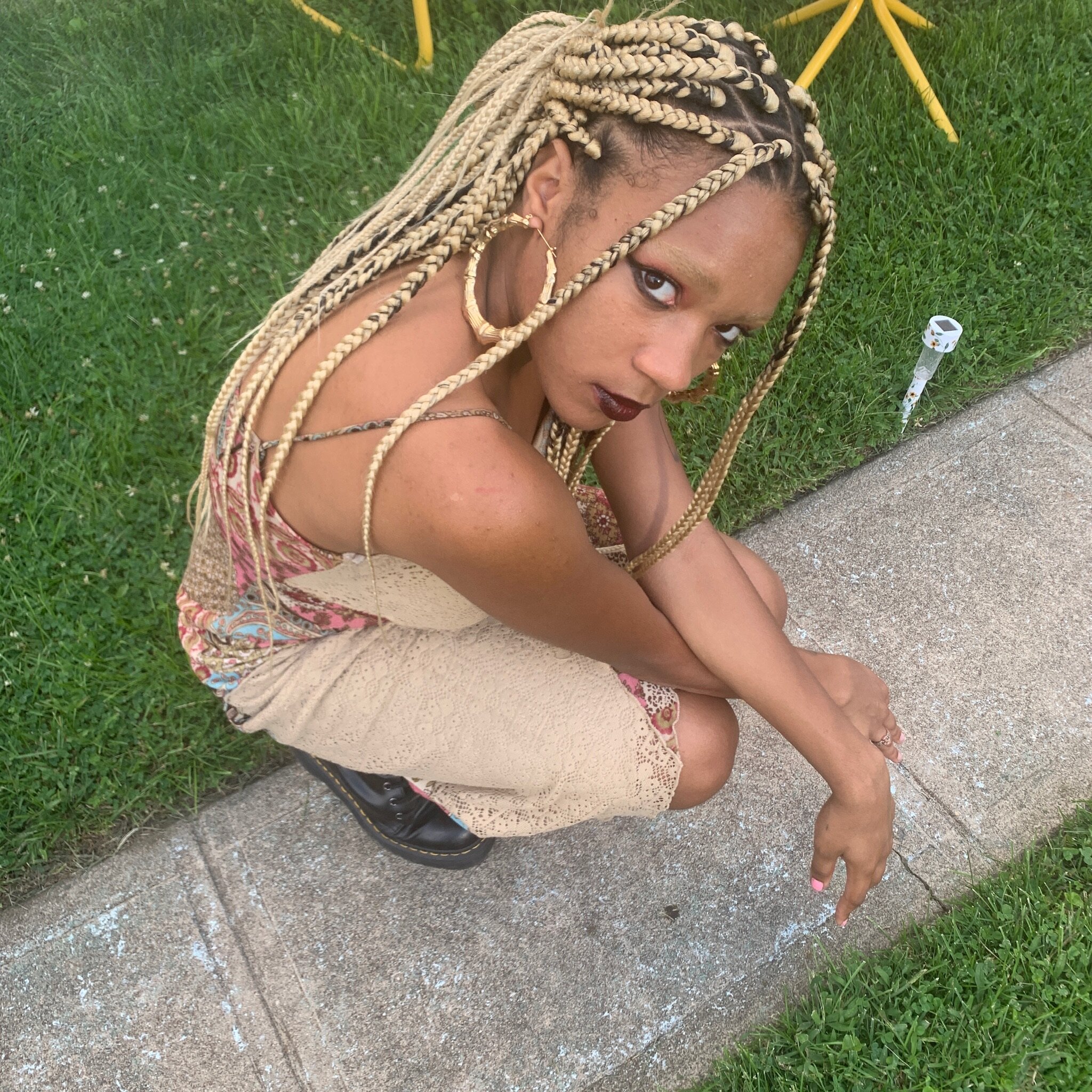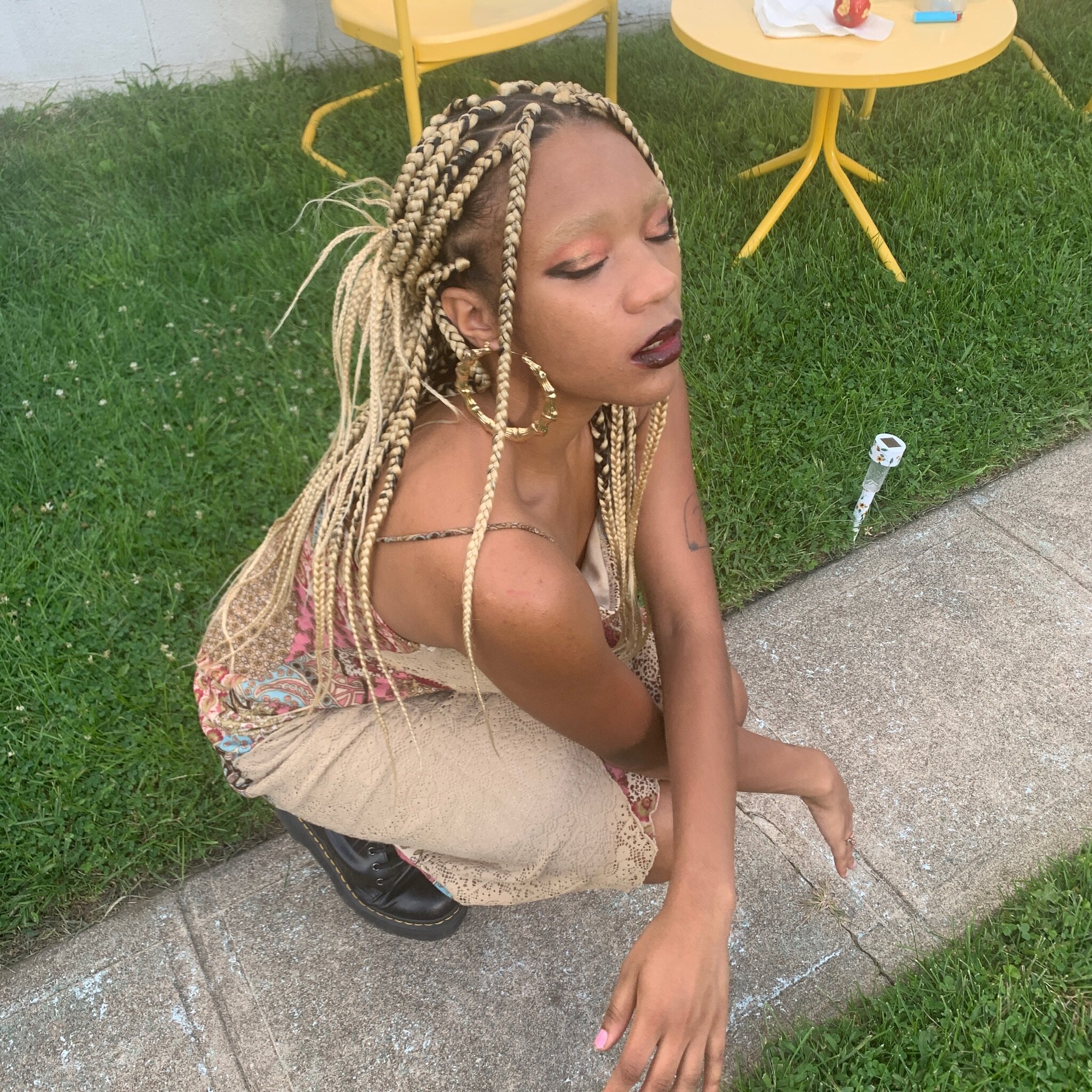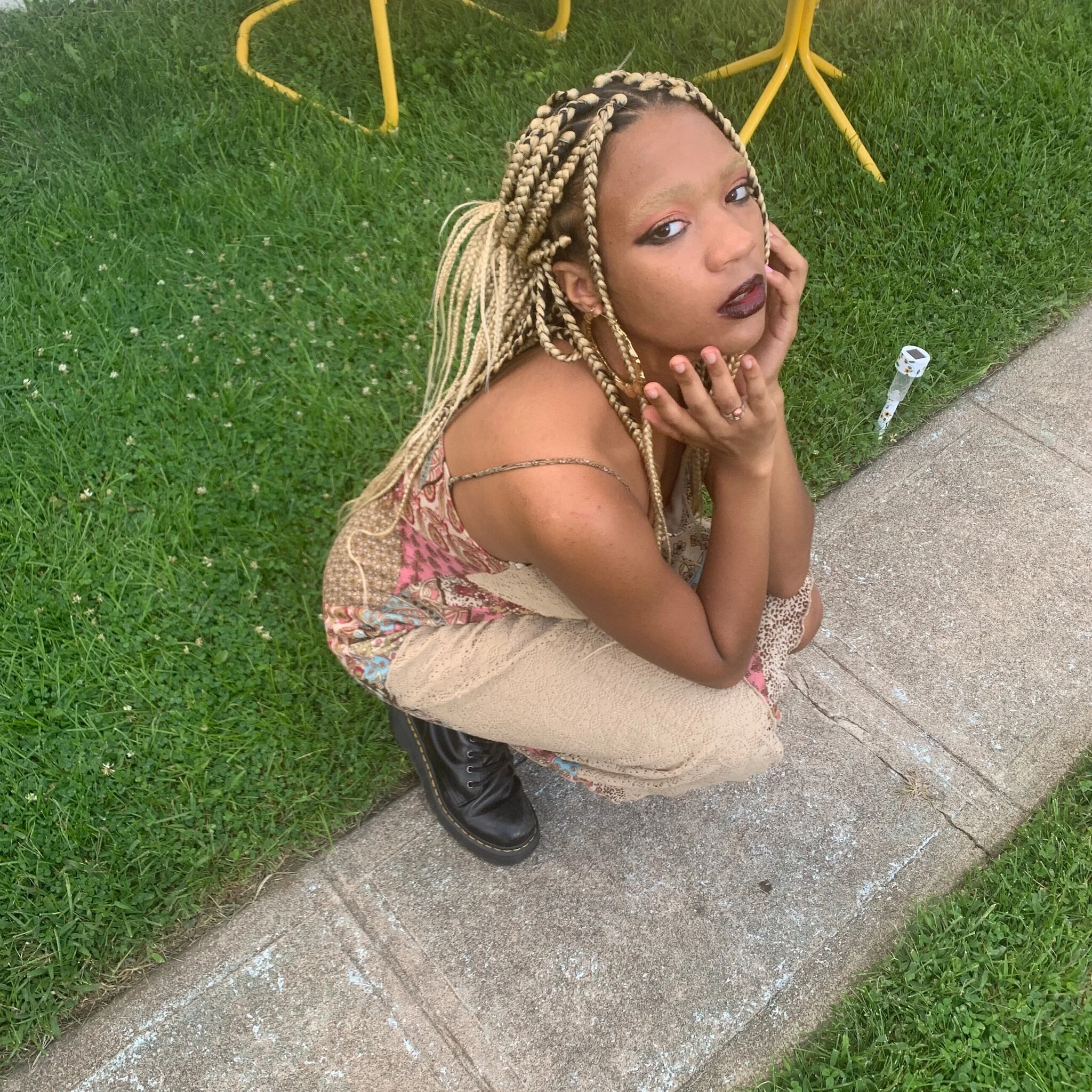an interview with Mella LaFrance
The title of the poem is “PICK UP YOUR SHIT ITS CROWDING MY BRAIN.”
We’re sitting at B&H, a mom-and-pop kosher restaurant in the East Village that they’ve brought me to twice, now. You’d think the elusive Mister Baby would lean over the lunch counter, cool as ice, and shout, “Give me the quarter flower special and coffee. Black,” but they don’t—either because B&H doesn’t have a secret menu, or maybe they don’t want the special today. They get the lentil soup with bread and butter, and a tuna melt. To drink, the free tap water. They even say please.
They do lean over the counter.
—
The title of the essay is “La mort de l’auteur.”
In 1967, French literary critic Roland Barthes wrote that words belong to the reader and not the author. His essay offered a novel idea about literary criticism, one that decenters the author and their life when critiquing a work. He called for a “death of the author,” of sorts—that to truly read a text, we must focus on the words and not the writer.
“The author,” Barthes writes, “is a modern figure.”
—
I met Mella for the first time last year, over Zoom.
There’s a picture of Mella LaFrance I always see in my head, and it’s their Zoom profile picture—hot pink dress,brown overcoat, braids long and blonde and pink, too. They’re picnicking on the park, by the water, glass of wine in hand.
Even face-to-face, I have to call them in first-name-last-name fashion, like their little Zoom icon tag. Mella LaFrance, mute button rarely on. They have one of those names that roll off the tongue so nicely, but also they’re just one of those people. They introduce themselves to me as Mella LaFrance, and too late, I mumble just my first name feebly.
I became a fan of Mella’s poetry, in those first few weeks online. Creepily, I devoured everything I could find online, on their Mister Baby Instagram page. I was led to their words for no other reason than this: I thought they were cool. Most other writers I love, I love their writing, first, and then later I might discover that they’re interesting.
I knew nothing about Mella, then, but their poetry was beautiful.
And then suddenly I did, and it’s still beautiful.
—
The guy who serves us at B&H knows Mella and gives them extra pickles. It’s loud in the restaurant, but Mella’s voice was made to recite spoken word poetry. In “PICK UP YOUR SHIT ITS CROWDING MY BRAIN,” they write, “I write shitty words down and put them in all caps to make them mean something,” but I think they’re wrong. If they talked in exclamation points, maybe I’d agree, but it’s more like they know their words mean something—the caps are just to remind us.
They talk over the noise of the restaurant. (Though, when I’m with Mella I’m usually feeling embarrassingly sentimental. In my notes I wrote the “music” of the restaurant, but I’ve listened back to the recording and it was in fact just noise.)
“I drink a shit ton of red wine,” Mella says. “I sit in a very comfortable spot. I make sure my space is clean, I make sure I’m clean. I usually reread some shit that I’ve written to remind myself I can actually write. The wine is an elixir into a romantic state of being. Everything I write is stained with that. It’s an ancient ritual, it’s cultural.”
—
I can’t say what exactly it is about their writing that moves me, only that it is like someone is clenching my teeth together with their hands and won’t stop even as I ask them too. When I’m done reading my jaw aches and I think maybe I like the feeling of yelling through my teeth. I’ve read “PICK UP YOUR SHIT” so many times, again and again, because it hurts so bad and I think I’m being conditioned to like the pain.
“... Deep anguish and regret over writing that piece,” Mella tells me. They raise their eyebrows a little, like, duh. “I never go back to it on purpose.”
I find this perfectly amazing and horrible. Do I wish I never knew? Did I imagine that Mella returned to it, again and again, in awe of their own poetic mastery? I don’t know. In “Death of the Author,” Barthes writes, “To give a text an Author is to impose a limit on that text, to furnish it with a final signified, to close the writing.”
Mella maintains that “PICK UP YOUR SHIT” leaves something to be desired, but I’d get it tattooed down my spine if they’d let me. When they tell me things about the poem, when they tell me things about themself, the magic of it doesn’t end, for me—instead I’m in awe. Every new piece of information is another line, another stanza, as well-written as the ones that are actually on the page. To give “PICK UP YOUR SHIT” Mister Baby, is to enrich it, to make it that the poem can never actually end. Which is perfect, because I don’t want it to.
—
Mella has the word “Mister” tattooed on one thigh, and “Baby” on the other. They publish poetry and zines online under the pseudonym, and it was in Mister Baby that “PICK UP YOUR SHIT” first saw life.
“Mister Baby is for Mister Baby. It’s just something I thought was fucking cool. I saw it on the back of the jacket. In Jarmusch’s Mystery Train. And it felt so powerful. ‘Yeah, that’s Mister to you.’ Damn, I’m gonna have to wrap my sandwich up. I bit off more than I can chew.”
Some writers take on a pseudonym to let the work stand for itself, but Mister Baby is not like other writers. Mister Baby is not cowering, but speaking in all caps.
“Mister Baby is one part of myself. It’s one mouth. Mister Baby was a private thing, and then it became public,” Mella says after they tell our server that they’d like the rest of their tuna melt to go. Mister Baby is not like other pseudonyms, which are a public way of saying private things.
—
“It’s the language which speaks, not the author,” Barthes wrote. But words are not plucked from thin air, and the person whose brain is being crowded in “PICK UP YOUR SHIT” is Mister Baby, Mella LaFrance. Is my brain crowded now, too, with those words I hold close to my heart? Sure, but they were Mella’s first. The beauty of writing is the human—not the letters and sentences, but the voice that speaks them, the mind that dreams them up, the heart that gives them to us. Writing is personal. It’s human, maybe the most human thing we do. It’s about the person behind the words talking to the person in front of them.
There’s something about Mella’s writing that speaks to me, I think more so because now I can talk back. I haven’t lost my awe and they haven’t lost their allure.
I think about Mella in a million ways—they are a braver writer than I’ll ever be, because I’ll never be bold enough to take on a brazen pseudonym, or ask about Sylvia Plath’s suicide in a poem. I think about Mella in a million ways—I call them and ask if I can stop by and they take me to B&H for lunch.
—
Is the work sufficient? It can be, but I also like to know what music Mister Baby listens to, or that they swear that Zelda Fitzgerald wrote Gatsby, or that they live over a restaurant they frequent, as if the universe knows they're a cool writer and wants to give them even more character.
Barthes says, “We know that to give writing its future, it is necessary to overthrow the myth: the birth of the reader must be at the cost of the death of the Author.”
Mella says, “Yeah, dude. F. Scott totally stole all her work.”
Barthes did not foresee Mella LaFrance, and who could have? Because I am reborn reading “PICK UP YOUR SHIT,” and then again when Mella tells me about it in the pale light of B&H, and tells me that they regret this line, or this one, or that “Mitski says some art is gonna make your mother cry. She did not say how terrible it would make me feel.”
It is a religious thing, to read the poetry and know the poet, a baptism not in water but through song, just as fluid and cool on the skin. There are gospels in the Bible, but when you come to Jesus, they’re music, they’re maxims, they’re stories, they’re yours.
—
The last line of the poem is “PICK UP YOUR SHIT ITS CROWDING MY BRAIN.”
Mella writes, “I TELL MYSELF THAT THE CHOICES YOU MAKE FROM SUFFERING/DON’T MAKE YOU HORRIBLE/JUST RESOURCEFUL.”
Mella asks, “WHAT DO YOU KNOW ABOUT SUFFERING?/DO YOU COME FROM IT?/I CUM FROM IT.”
Mella leans over the table, shrugs off my admiration, says, “Do you want some of this bread?”
